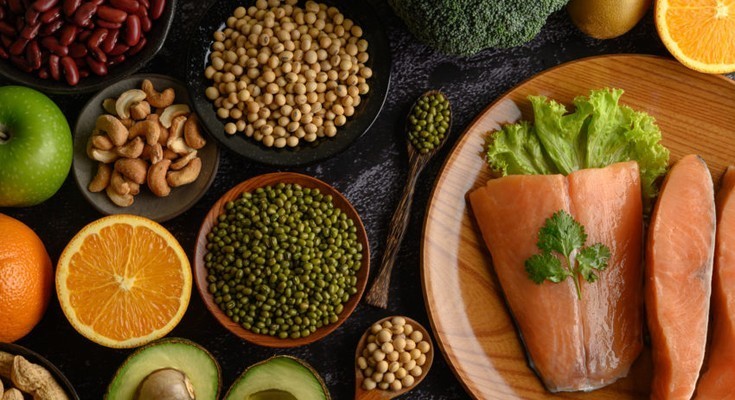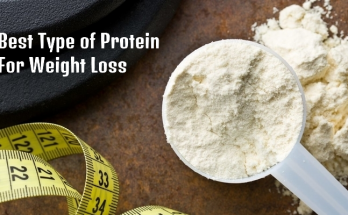We should eat sufficient protein every day for meeting our body’s requirements. It helps our body in maintaining an appropriate fluid balance, transports nutrients, makes and repairs tissues, and offers other important functions.
Protein is the most significant nutrient that your body needs. From your fingernails to your hair to the muscles, it holds all body cells together. This is what makes up several prime antibodies and hormones. This is why you need to add a sufficient amount of protein to your daily diet.
As per new evidence, your requirement of protein is based on different factors – health, age, activity level, and diet.
Let’s discuss how much protein you should have daily, how you can assess your requirements, how much protein is excess, and which individuals may require more. Here all you require knowing to ensure you are consuming the appropriate amount of protein.
Why Should You Care About Protein?
Since protein is the prime building blocks of the body, it is used for making skin, organs, tendons, muscles, and neurotransmitters, hormones, and enzymes, and different small molecules that cater to several essential functions. So, without protein, your life can be tough to lead.
Proteins are made of tiny molecules known as amino acids, some of which your body can produce and you should get others through your daily diet. The latter are known as essential amino acids. Usually, animal protein offers every essential amino acid in a perfect ratio for you for making complete use of them.
In case you eat animal foods like dairy, eggs, fish, or meat daily, you are having a pretty good amount of protein already. Nevertheless, if you are not having animal products in your diet, it can be more challenging to get your body all essential amino acids and protein.
In that case, some individuals need to have protein supplements and they can be more helpful for bodybuilders and athletes.
How Much Protein Do You Need Daily?
While deciding your protein needs, you can either identify a level of complete day by day calories or you can focus on a particular number of grams of protein to consume every day. Here are the methods to calculate protein needs.
Deciding Based on Percent of Daily Calories
Present instructions, settled by the Institute of Medicine in 2002, suggest that individuals of 19 years old and older can have 10-35% of their regular calories from protein. For a 2000 cal diet, this is nearly 200-700 cal from protein. To assess the right amount of protein you require daily, you need to multiply 0.8 gm of protein/kg of your body weight.
Deciding Based on Protein Grams per Day
The recommendations of the IOM establish the minimal amount of protein you require eating for avoiding the deficiency of this essential nutrient. If you don’t consume sufficient protein, it could cause huge muscle loss and other health problems.
According to studies, targeting for more between 1.3 and 1.8 gm/kg of body weight is maybe absolute for health, particularly when it comes to preventing age-related muscle loss.
Endurance athletes can consume 1.2-1.4 gms of protein/kg of body weight daily. This translates to 0.5-0.6 gms of protein/pound of body weight. Also, strength-trained athletes should intake 1.6-1.7 gms of protein/kg of body weight daily. This translates to 0.7-0.8 gms of protein/pound of body weight.
Depending on Lean Body Mass
Another way of calculating how much protein you require considers lean body mass and activity levels. As per some professionals, this is a more appropriate strategy as our lean body mass needs more protein to maintain than the fatty tissue. Lean body mass is just the bodyweight amount and not fat. It incorporates organs, muscles, water, bones, and other tissues.
Various ways are there to decide your lean body mass, but the simplest one is to subtract the body fat from the whole body mass. Hence, you should decide your body fat percentage first. Various ways are there to get the number incorporating body fat examining using DEXA scans, BIA scales, or skin calipers. Using this calculator also you can assess body fat.
Then, assess your whole body fat in pounds. Multiply the weight of the body by the percentage of body fat. Finally, assess lean body mass. Just subtract the body fat weight from the whole body weight.
Read also: The Ultimate Guide to Get a Lean and Ripped Body: Supplements to Opt for
How Will You Get Sufficient Protein In Your Diet?
The best protein sources include dairy items, eggs, fish, and meats, as they contain all essential amino acids that your body requires. A few plants are quite high in protein amount also, such as nuts, legumes, and quinoa. Nevertheless, usually, maximum people don’t require tracking their protein consumption.
In case you are a healthy individual wishing to stay healthy, then just eating high-quality protein alongside maximum meals and nutritious plat items must bring your consumption to the ultimate range.
How Much Protein Is Excess For Your Body?
Consuming lots of protein can imply skipping nutrients from healthy fats and carbohydrates. For this reason, experts recommend doing eating nearly 1/3rd of your daily calories from protein and maintaining an approx of 2gms/kg body weight daily. This is almost 140-160 gms every day.
Excessive intake of some protein sources is associated with a higher risk of cardiovascular disease and some types of cancer. So, restrict your protein intake for the utmost advantage. Moreover, don’t be concern regarding your protein consumption putting you at risk of osteoporosis or kidney stones.
A recent study has discovered that consuming in a higher range may be advantageous for bone health, particularly when you are having sufficient calcium. And if you don’t have kidney issues, your protein consumption will not possibly lead to danger.
Important Instructions for Some Individuals
Several sources that offer protein instructions offer numbers for both adult men and women. However, there are some people who may require more or less to aid growth or deal with a medical condition. Although a dietitian or doctor would be ideal for deciding your perfect percentage of protein consumption, here are a few instructions that can be useful:
- Individuals having kidney or liver disease require reducing their protein consumption.
- Older adults require more protein than middle-aged individuals.
- Lactating and pregnant women require more protein than women who are not lactating or pregnant.
- Teenagers and kids require more protein than adults.
Everybody requires a different amount and several factors are there to affect your number. Hope this blog is useful to provide you all the required info.




